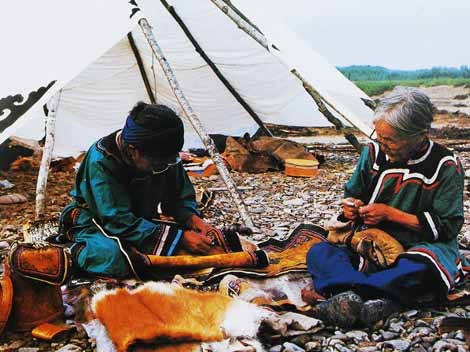Orogen, dubbed as China's last hunting tribe, has been struggling to save its distinctive culture as it sees its younger generation veer away from the ethnic minority's tradition.
The tribe, located in the north and northwestern China, has been holding cultural performances as part of its ongoing efforts to keep its culture alive.
Bai Li, an Orogen minority, remarked during an interview after a performance by the Morigen Troupe for the Performing Arts of Orogen: "It is very difficult to sing in my ethnic language and to dance in these clothes, but it's worth it because the audience has embraced my culture."
Bai, who heads the troupe, revealed that they have already recruited over 20 members. In the latter half of last year, the group has staged a total of 20 performances.
"Orogen culture is very unique. As a part of the ethnic group, it is our responsibility to bring it back to life," Bai said.
Meanwhile, officials of the Orogen Autonomous Banner in Inner Mongolia Autonomous Region said that they will be crafting measures to help save the Orogen culture.
Part of the plan is to develop cartoons in their language and gather local ethnic shooting teams again.
He Xueguang, the autonomous banner's deputy head, also said that they "will also organize local Orogen people to manufacture ethnic handicrafts."
According to government data, the ethnic group has only 300-odd people within the banner that can fluently speak their dialect, which has no written characters.
"These days, almost all young Orogen people speak Chinese, and many of them cannot understand the Orogen language spoken by the older generation," the 71-year-old Orogen Nei Shumei said.
He Liangang, an Orogen man from Inner Mongolia, voiced out his insight that the gradual loss of their culture can be traced from the evolving life.
"We no longer live like our hunting ancestors, so there is no need to communicate or dress like they did," He emphasized.




























